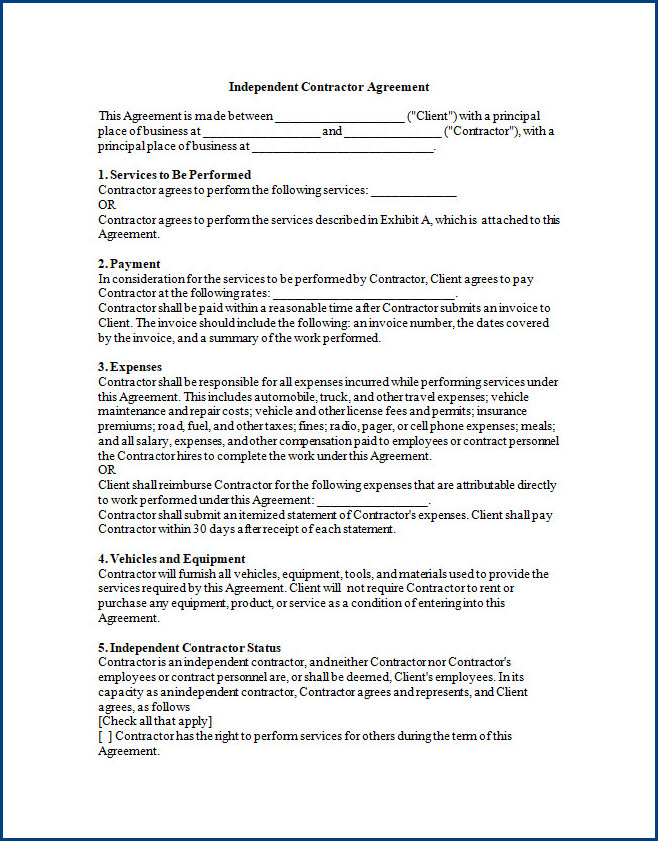What is the contract agreement for an independent contractor?
A contract agreement for an independent contractor is a legally binding document that outlines the terms and conditions of the working relationship between a company or individual and an independent contractor. This agreement is crucial in establishing the rights and responsibilities of both parties involved. It typically includes details such as the scope of work, project timeline, payment terms, and intellectual property rights. The contract agreement also clarifies that the independent contractor is not an employee, but instead operates as a separate entity responsible for their own taxes, insurance, and benefits. It is essential to have a well-drafted contract agreement to ensure a clear understanding and avoid any potential disputes or misunderstandings.
Why is an independent contractor agreement important?
There are several reasons why an independent contractor agreement is important and beneficial for all parties involved.
- Clarity and protection: One of the main benefits of an independent contractor agreement is that it provides clarity and protection for both the business/client and the independent contractor. It clearly defines the scope of work, deliverables, and timelines, ensuring that both parties are on the same page. This helps to avoid any miscommunication or misunderstandings that may arise during the course of the project.
- Legal compliance: Independent contractor agreements are essential for legal compliance. They help to establish the independent contractor status, ensuring that the individual is not misclassified as an employee. This is important for tax purposes and can help businesses avoid legal issues and penalties associated with misclassification.
- Ownership of work: Another benefit of an independent contractor agreement is that it clearly outlines the ownership of work. It establishes that the business/client retains the rights to the work produced by the independent contractor, protecting their intellectual property and preventing any disputes in the future.
- Payment and invoicing terms: The agreement also includes details about payment and invoicing terms, ensuring that both parties are aware of how and when payment will be made. This helps to maintain transparency and avoid any payment-related conflicts.
- Confidentiality and non-disclosure: Independent contractor agreements often include confidentiality and non-disclosure clauses. This ensures that the independent contractor maintains the confidentiality of any sensitive information they have access to during the project, protecting the business/client’s proprietary information.
- Dispute resolution: In the event of any disputes or disagreements, an independent contractor agreement provides a framework for resolving conflicts. It may include provisions for mediation or arbitration, saving both parties time and money by avoiding costly legal battles.
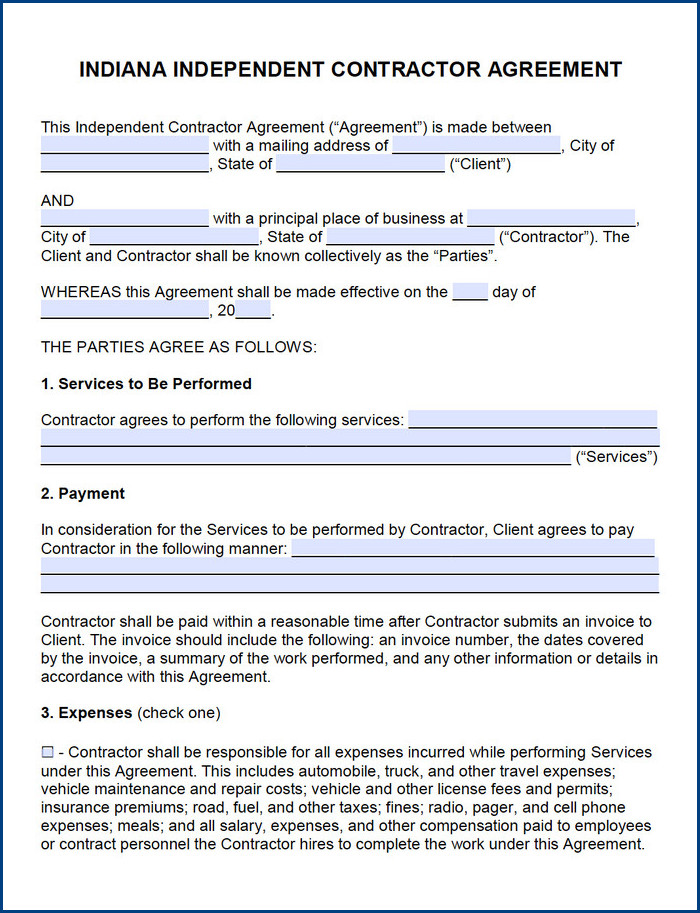
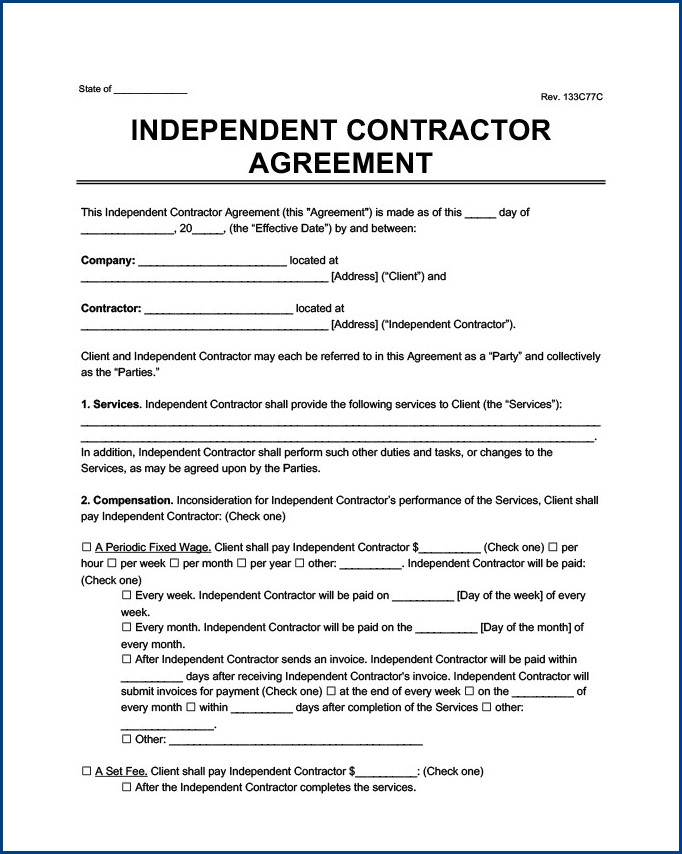
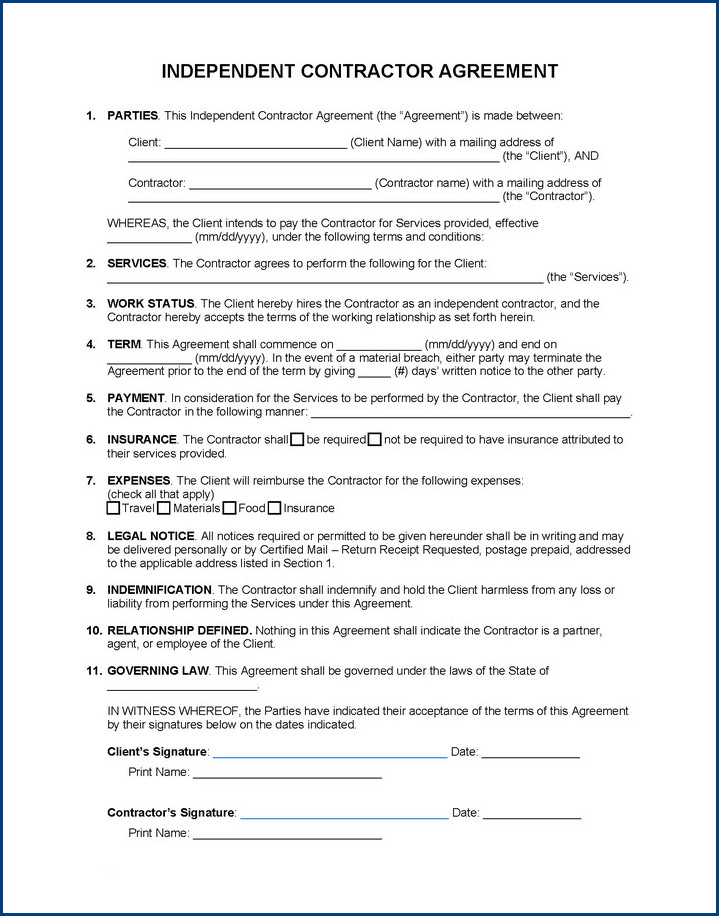
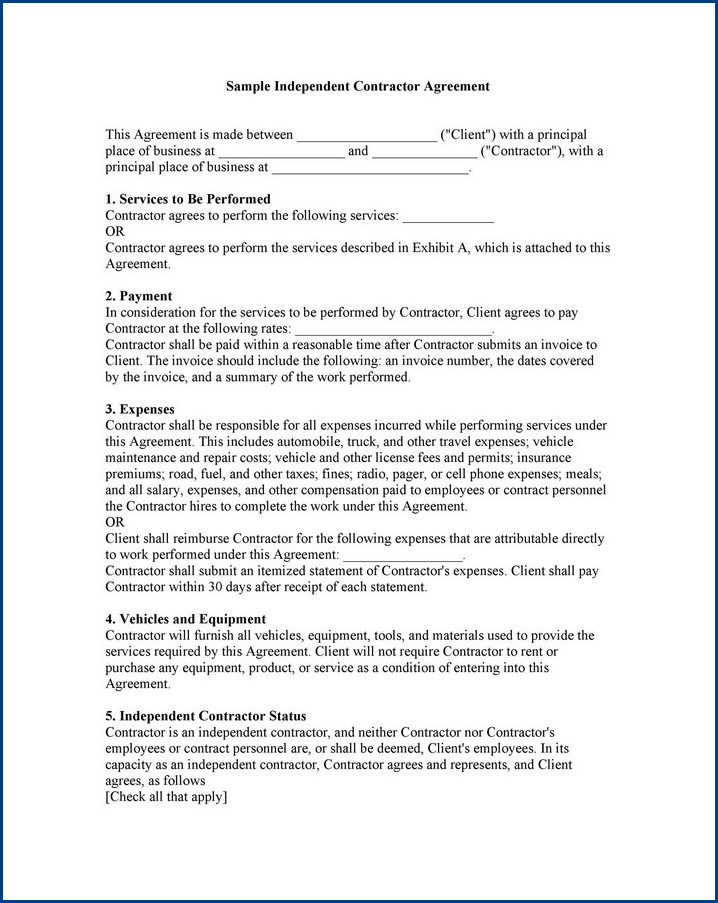
What to include in an independent contractor agreement?
Here are some key items that should be included in an independent contractor agreement:
- Scope of work: Clearly define the scope of work that the independent contractor will be responsible for. This includes detailing the specific tasks, deliverables, and timelines.
- Payment terms: Outline the compensation structure, including the rate or fee the contractor will receive, the frequency of payments, and any additional expenses that will be reimbursed.
- Confidentiality and non-disclosure: Specify that the independent contractor is bound by confidentiality obligations and cannot disclose any sensitive information about the company or its clients.
- Intellectual property: Clarify who will own the intellectual property rights to any work created by the contractor during the course of the agreement.
- Termination clause: Include a termination clause that outlines the conditions under which either party can terminate the agreement, such as breach of contract or non-performance.
- Indemnification: State that the independent contractor will indemnify and hold harmless the company from any claims, damages, or liabilities arising from their work.
It is recommended to seek legal advice when drafting an independent contractor agreement to ensure compliance with local laws and regulations. By including these essential elements, both parties can have a clear understanding of their rights and responsibilities, minimizing the risk of disputes and ensuring a smooth working relationship.
Independent Contractor Agreement Template | Word – Download
Independent Contractor Agreement Template | PDF – Download
